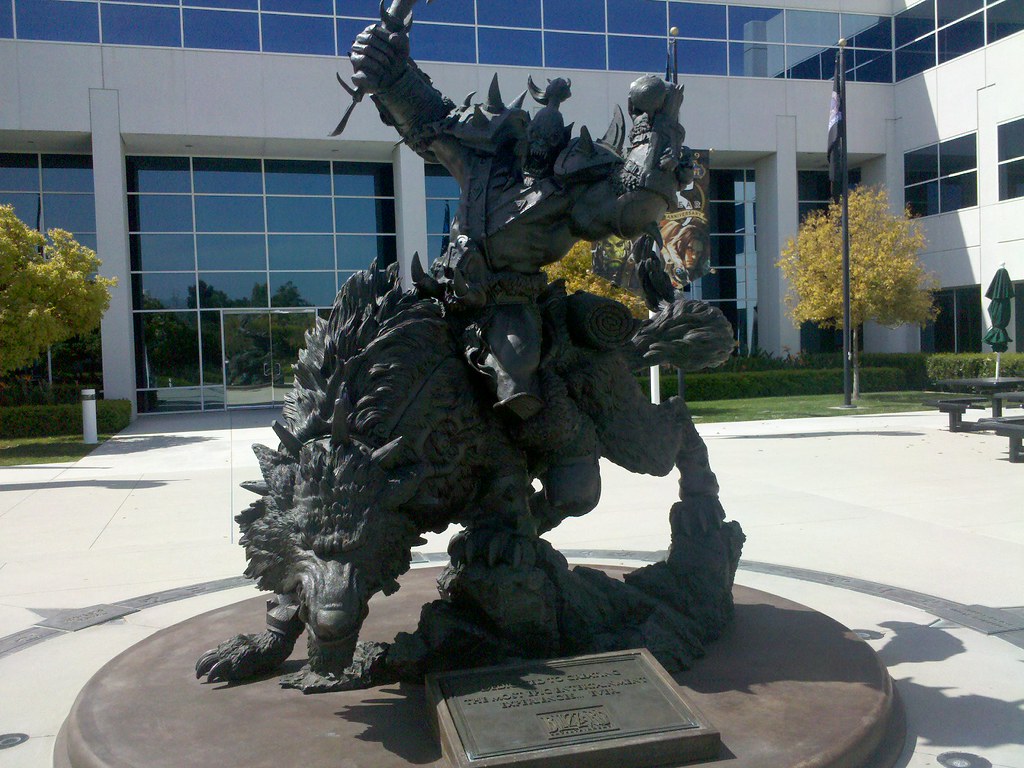Note: Since writing this story, Blizzard has officially responded to the issue. ExLudico’s response to the response has been added below.
In an interview with Taiwanese casters Virtual and Mr. Yee last weekend, the Chinese professional Hearthstone player Blitzchung offered a message of solidarity with the ongoing pro-democracy protests in Hong Kong. Speaking in Mandarin, the de jure official language of the People’s Republic of China and an official language of Taiwan (but not Hong Kong), Blitzchung called for “liberation” and underscores his support for protesters.
Blitzchung, whose real name is Ng Wai Chung, reported soon afterward that Blizzard responded to the incident by disqualifying him from the tournament he was involved in, reclaiming cash winnings of $10,000, and banning him from the game. The official rule cited by Blizzard gives the games giant the right to terminate the accounts and confiscate the winnings of players who engage “in any act that, in Blizzard’s sole discretion, brings you into public disrepute, offends a portion or group of the public, or otherwise damages” the company’s reputation. The rule appears to be written loosely so as to be applicable based on the discretion of Blizzard’s administrators alone. And while that’s fine and may be common in similar contracts, it shifts the onus of explanation and responsibility from the rule-breaker to the rule-makers. Without sufficient explanation, Blizzard seems to be making a statement that speaking out against the Chinese government is a punishable offense for players everywhere.
The fallout didn’t stop with Chung. The two Taiwanese casters who allegedly allowed and encouraged the statement also had their contracts terminated by Blizzard without explanation. In the week following the incident, Activision/Blizzard has remained relatively silent on the issue, even as members of their corporate community speak out against the action and policy at large. A staged walk-out on Blizzard’s Irvine campus saw umbrella-wielding employee protesters gather around the company’s iconic orc statue. Some brought sheets of paper used to cover up the allegedly-broken company values inscribed around the statues base, particularly those reading “Think Globally” and “Every Voice Matters”.
As of Friday, October 11, Blizzard remains tight-lipped on the issue, having spoken neither with journalists nor publicly on their official Twitter feeds. The controversy comes alongside similar concerns over the National Basketball Association’s handling of anti-China rhetoric from their teams, players, and platforms. Response to both issues sees fans upset at the application of China’s pressure to silence or punish citizens of other countries. Some have been quick to point out that Blizzard’s expanding (and expansive) Chinese business interests are responsible for their action here, but financial interests should not overpower basic justice.
That a corporation is interested in profit does not justify its pursuit of profit without question or restraint. We could all make an extra buck by stealing and selling human organs, but we’re stopped by the legal and (hopefully) moral systems that surround us. Again, unless you’re China [organs link]. Wanting access to a billion-man market makes sense from any company’s perspective, but if entrance into that market means betraying democratic and humanitarian ideals, the market should not be worth entering. Blizzard here is drawing their line in the sand, making clear that the value of profit outweighs those of free speech and human rights. By banning a player for speech offensive only to a repressive government, Blizzard has announced its decision to stand with that government, one actively involved in international censorship, the violation of human rights, and genocide, against players (and everyone else) around the world.
It may be time to relocate that corporate campus to Beijing.
Edit: After writing this story, Blizzard President J. Allen Brack responded to the controversy. In a company blog post, Brack wrote that “our relationships in China had no influence on our decision,” and doubled down on the assertion that Chung’s ban was due entirely to his violation of tournament rules. Later in the post, Brack wrote “Moving forward, we will continue to apply tournament rules to ensure our official broadcasts remain focused on the game and are not a platform for divisive social or political views”.
In other words: a company that respects human rights internationally? You think you want it, but you don’t.
